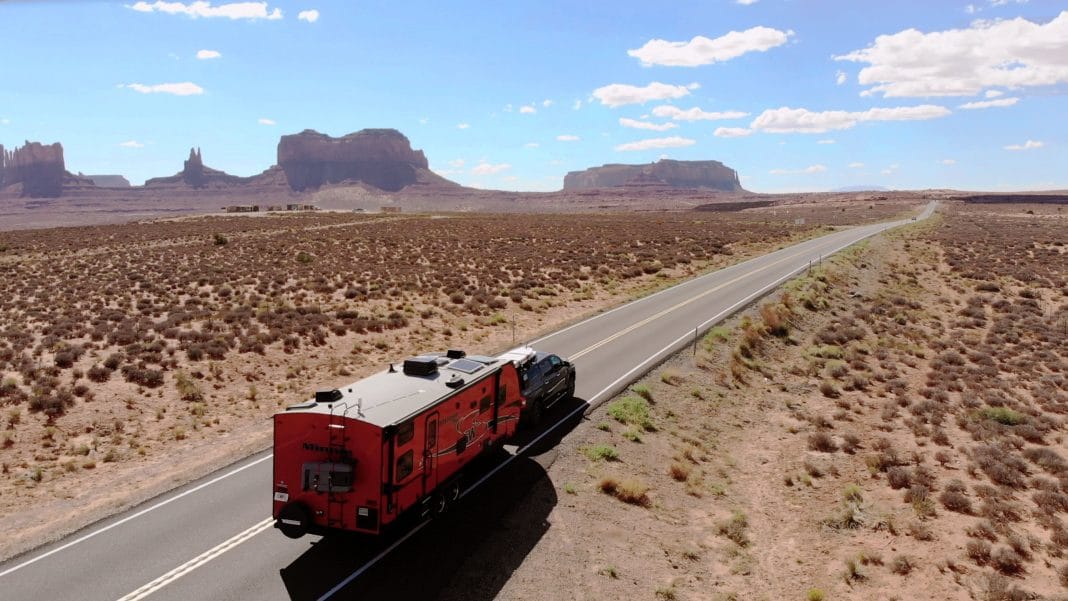Despite record-breaking fuel prices, typical RV trips remain the least expensive type of vacation, according to a new study comparing vacation costs. PKF Consulting, an international consulting firm with expertise in travel and tourism, found that “typical RV family vacations are on average 27 to 61 percent less expensive than other types of vacations studied.” Even factoring in RV ownership and fuel costs, the study reveals that RV family vacations tend to be significantly less expensive than other types of vacations. “This study re-affirms what RVers have long known, that RV vacations deliver greater economic value compared to other types of vacations,” says Richard Coon, president of the Recreation Vehicle Industry Association (RVIA). “RV vacations continue to be the most affordable way for a family to travel because of the tremendous savings on air, hotel and restaurant costs. And these savings offset the cost of fuel.”
PKF analyzed major costs that would be incurred by a family of four taking eight different types of vacations for three, seven, 10 or 14 days to such popular travel destinations as the Grand Canyon, Cape Cod, and Napa, Calif.
“On average, RV vacations were more economical than the other types analyzed in all but one case,” says Kannan Sankaran, PKF’s lead researcher for the study. “Even as fuel prices increase, our findings show that almost all RV vacations are still significantly less expensive than non-RV ones.”
Fuel prices would have to more than double for typical motorhome vacations to become more expensive than other forms of travel, according to PKF Consulting. The study also shows that fuel costs would have to more than triple for trips in lightweight travel trailers or folding camping trailers to be more expensive than the least expensive non-RV vacation. Almost 80 percent of the RV market consists of towable RVs, including lightweight units which can be towed by car, van or pickup. RV owner John Bargo, a computer operator from Milwaukee, Wisc., agrees with PKF’s findings. “When you figure the cost of driving in a car, staying in hotels and eating in restaurants, it’s a lot more expensive than bringing your lodging and food with you.” Dennis Silipena, a 55-year-old service and parts manager from Hammonton, N.J., also appreciates the affordability of RV travel. “I’ve owned an RV for 25 years and I’ve enjoyed significant savings over other types of vacations. I pay $30 to $40 to stay in a campground rather than $150 to stay in a hotel. And it’s a much nicer experience staying in my RV.”
The study showed that a family of four traveling from Phoenix, Ariz. to Napa, Calif., with their folding camping trailer for 10 days, staying in campgrounds at the local average of $33 per night, would save 52 percent, or $2,379, over the same trip taken by car, staying in hotels averaging $122 per night and eating in restaurants. Taking the same vacation by a Type C motorhome would save $1704, or 37 percent, over going by car. A week-long family vacation towing a conventional travel trailer from Salt Lake City to the Grand Canyon compared to the cost of taking the same trip by airline, renting a car and staying in a hotel would be $2,647, or 65 percent less expensive.
Shorter getaways by RVs were also found to be more economical. For example, a family taking a three-day vacation from Pittsburgh, Pa. to Lancaster, Pa., would save $323 or 31 percent by towing a conventional travel trailer, rather than going by car, staying in hotels and eating in restaurants. The savings would be even greater — $889 or 52 percent — for families taking the same trip by a Type C motorhome rather than flying.
Among the RV vacations analyzed by PKF, even those taken in an ultra-luxury Type A diesel motorhome were less expensive than flying and staying in a hotel. Only a family taking a vacation by personal car with hotel or renting a condo and cooking for themselves would cost less than a family taking a trip in a Type A motorhome. “Owners say the added space, comfort and convenience while traveling justify the investment in a Type A,” noted Coon.
In addition to major expenditures required from the start to finish of each vacation, PKF factored in an estimated cost of ownership of the RVs analyzed: a folding camping trailer, conventional travel trailer, and Type C and Type A motorhomes. Research included documenting average ownership periods, residual values, annual days of use, insurance and applicable interest deductions.
“RV vacations are a great way for families to spend time together and bond,” said Coon. “Whether it’s in a luxury motorhome or a basic folding camping trailer, RV vacations offer value that lasts a lifetime.”
The PKF study considered only quantifiable economic factors, not the comparative quality of each vacation. As a result, the convenience, flexibility and quality family time cited as major benefits of traveling in an RV could not be addressed.
Visit GoRVing.com for more information about RVing and to get a free DVD on how to get started RVing.


